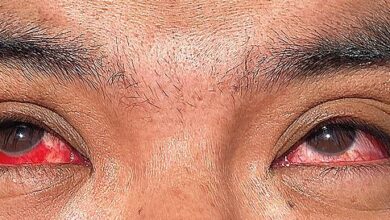Are blood pressure tablets the reason I get dizzy when gardening? DR ELLIE has the answer



I am 87 and when I pull weeds in my garden I get really dizzy. My blood pressure also drops when this happens. I take losartan for my blood pressure and have well controlled type 2 diabetes. What could be the problem?
Dr. Ellie Cannon responds: Gardening at 87 is probably very healthy, so it is important to find ways to keep these symptoms under control.
It is not uncommon for patients taking blood pressure medications to become dizzy, especially when leaning forward. This can happen if the blood pressure drops too low. It is a potentially dangerous side effect, as a sudden attack of dizziness can lead to a nasty fall.

It’s not uncommon for patients taking blood pressure medications to experience dizziness, writes Dr. Ellie Cannon, especially when leaning forward, such as when gardening.
Dizziness is not usually associated with losartan. However, it is possible that too high a dose may cause this side effect.
If you experience these symptoms, it is best to consult your doctor to see if you should take a lower dose of losartan.
Switching to a different type of blood pressure medication, called an ACE inhibitor, may also solve this problem.
Another way to prevent a sudden drop in blood pressure is to wear compression stockings. These are tight socks that gently squeeze the legs to help blood flow back to the heart.
I have received emails advertising natural remedies that are supposed to cure Alzheimer’s. They contain mushrooms and claim to have no side effects. I am afraid of getting dementia. Would these remedies help?
Dr. Ellie Cannon responds: This has the hallmarks of a health scam. Unfortunately, there are no drugs that can cure the degenerative brain disease Alzheimer’s.
There are two drugs – lecanemab and donanemab – that appear to slow its progression somewhat.
But these are powerful pharmaceutical drugs given in hospital with a number of potentially serious side effects – and certainly not natural remedies. Their benefit is so marginal that health leaders have decided not to introduce them on the NHS.
Anyone who claims to offer a treatment that can cure Alzheimer’s is lying.
It’s important to remember that the word “natural” doesn’t automatically mean something is safe or actually effective.
There are many medicines that are made from natural ingredients, but they undergo extensive clinical testing before they are approved for use.
It is also unfair to claim that a medical treatment has no side effects. Even the simplest medications, such as ibuprofen and paracetamol, can cause side effects in some people.
The good news is that doctors are increasingly understanding the steps people can take to reduce their risk of Alzheimer’s. These include physical activity, quitting alcohol and smoking, losing weight, and socializing more by seeing friends and family.
Interestingly, research also suggests that getting glasses to correct poor vision—and undergoing cataract surgery if needed—can also reduce your risk of the disease. And so can getting hearing aids, if needed.
These are all simple and effective measures that you can discuss with your doctor and that will actually make a difference, unlike an unproven – and likely expensive – bag of mushrooms.
I am 75 and have had a rash on my neck, hands and eyes for the past year. My GP prescribed steroid creams but that has not helped. I am at my wits end. What can I do?
Dr. Ellie Cannon responds: A persistent rash is sometimes a sign of an allergic reaction. If the cause is not addressed, no cream will solve the annoying problem. A possible trigger could be a food allergy, so anyone who develops a new rash should consider whether they have recently added a new food to their diet. In some cases, supplements can also trigger an allergic reaction.
Other possible causes include new cosmetic products, such as shampoos, soaps and moisturizers, and detergents.
People who suffer from a persistent rash should consider trying an antihistamine tablet. If an allergy is the cause of the problem, there should be a noticeable difference after starting the daily pill.
A fungal infection can also lead to a rash. An antifungal body wash can help. This is something a GP can prescribe. Another condition to consider is dermatomyositis – a rare health condition that causes muscle weakness and a rash.
In some patients, muscle weakness does not occur initially, so the absence of this symptom does not necessarily rule it out. This should be investigated by a skin specialist.
If the rash persists, the patient should ask for a referral to a dermatologist.

Immunotherapy may be a useful treatment for hay fever (photo posed by model)
Pills full of pollen reduce hay fever symptoms
Thought it was time to stop thinking about hay fever? Think again – because if you want to tackle pesky allergy symptoms, now is the time.
Immunotherapy is a growing area of treatment. It involves taking small tablets of pollen every day for several months. The idea is to train the immune system to get used to the presence of pollen, so that when allergy season comes around again, it leads to a weaker reaction and therefore less irritating symptoms.
My teenage son, who suffers from terrible hay fever, is starting immunotherapy this month and I am curious to see if it will work in time for the exam period next year.
I will definitely keep you informed, because I am convinced that it can make a big difference for many people.
Drinking at home is a real danger
I work on a campaign called the International Alliance for Responsible Drinking, which advises people on how to moderate their drinking to tackle alcoholism.
Britain has a huge drinking culture and many people don’t realise how dangerous it can be. Alcohol increases the risk of fatal diseases such as cancer, heart disease and dementia. So we need to do what we can to reduce this.
But I know it’s easier said than done.
Many of my patients tell me that they have never been able to quit because they enjoy drinking with friends and are afraid of losing their social life.
I always advise them that if they want to drink less, it is a good idea to stop drinking alcohol altogether at first.
We’re all guilty of over-indulging ourselves. So just stop!




